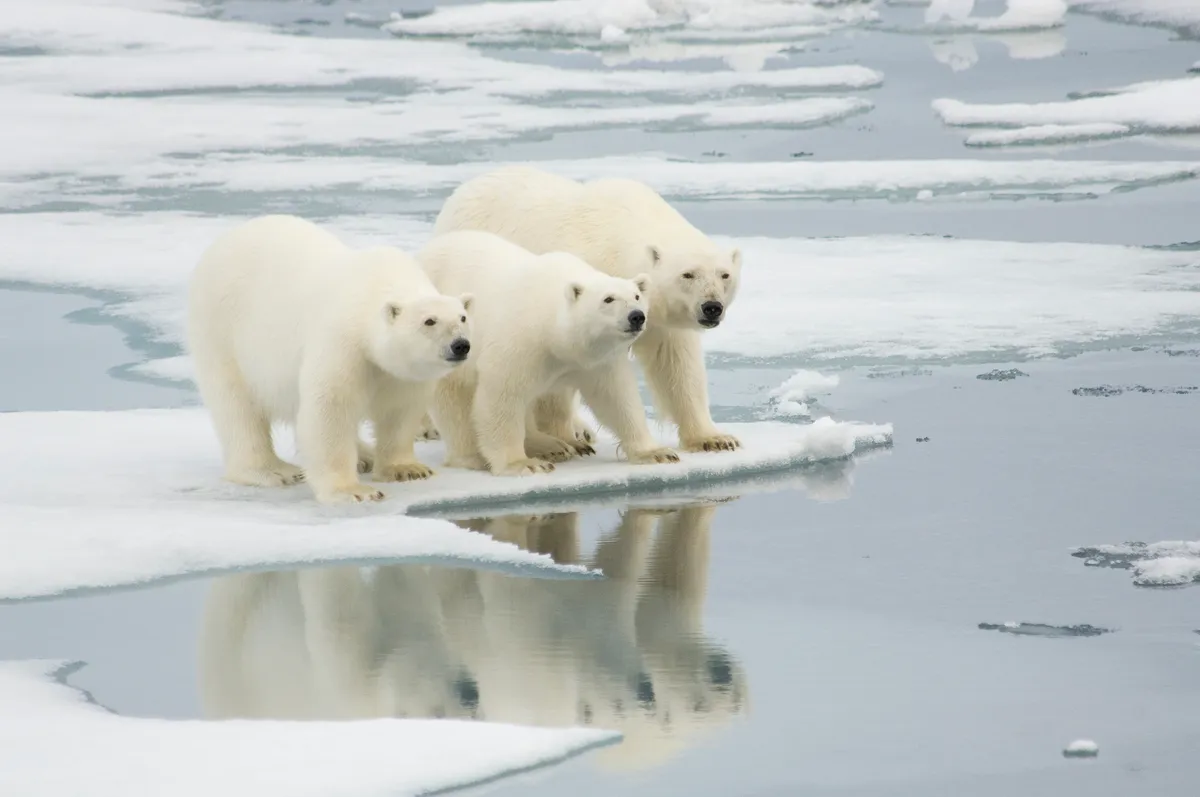1
Aren’t there more polar bears today than ever?
In the 1960s, it became clear polar bears had been seriously depleted by commercial, subsistence and sport hunting. Regulating this activity in 1973 allowed populations to increase but large areas remain unstudied, making global trends uncertain.
We do know that some of the 19 polar bear populations are stable, some may be growing and others are declining, with recent losses of up to 50 per cent.
2
What’s the biggest threat to polar bears?
Climate change is causing significant changes in sea ice extent, condition and duration throughout the Arctic. Polar bears need sea ice to hunt seals, and these reductions are leading to fewer cub births and reduced survival rates. Sea ice is disappearing at different speeds across the Arctic, so each population is responding on a different time scale.

3
Can polar bears adapt to a life without sea ice?
Polar bears evolved to exploit the energy-rich blubber of seals. Observations of them consuming terrestrial prey such as seabird eggs and chicks date back hundreds of years, but the increasing frequency of such records reflects the extra time bears now spend on land.
However, these food sources are inadequate to support a whole population, and besides, the terrestrial bear niche is filled by brown bears, which are thriving in a warming Arctic.
4
Do all scientists agree that climate change is the biggest threat?
Efforts by some to discredit the research showing that polar bears are at risk appear to be aimed at sowing doubt about the science of climate change and to weaken support for greenhouse gas emission reductions.
But the consensus among polar bear scientists is clear: sea ice loss is a serious threat to the survival of the species in the long term.